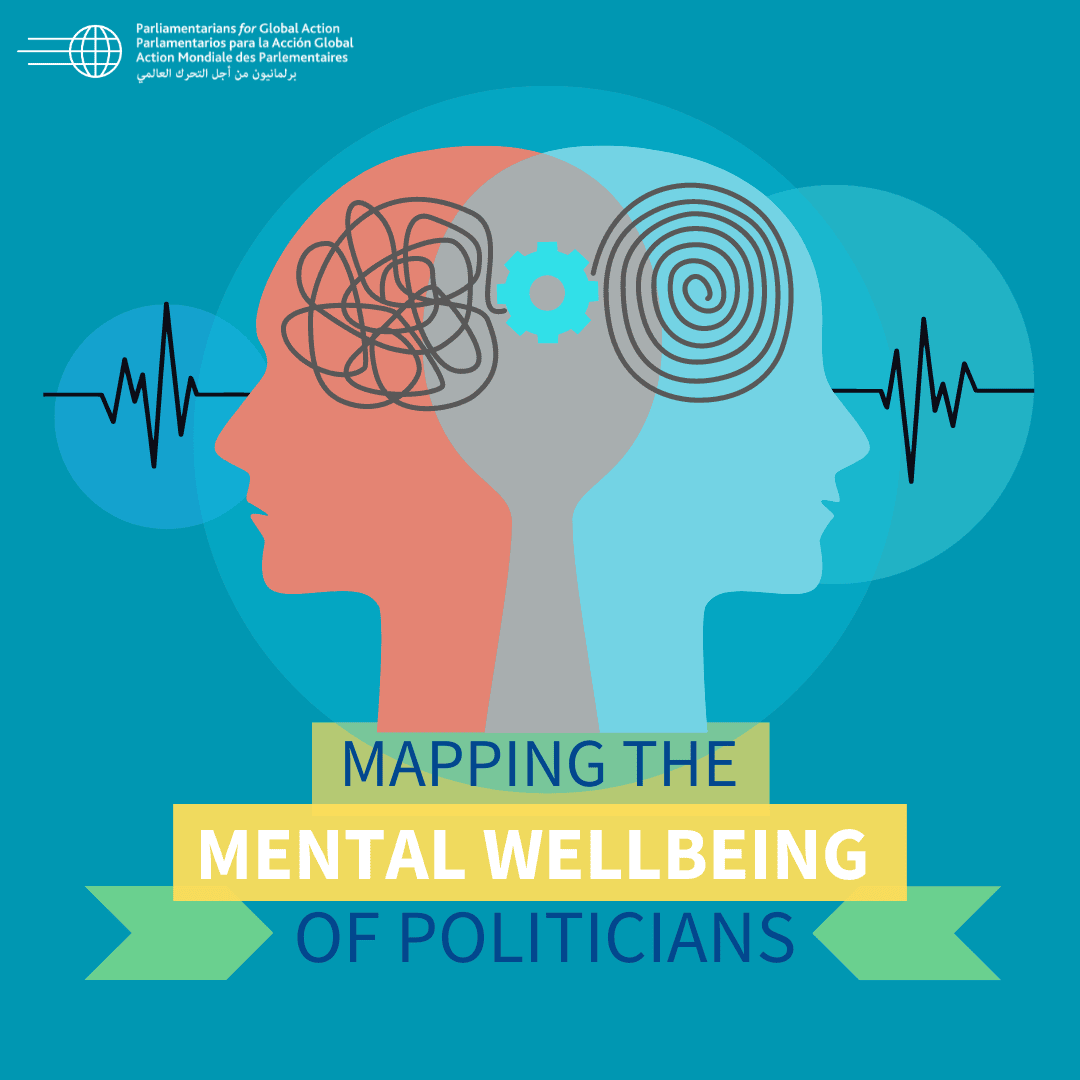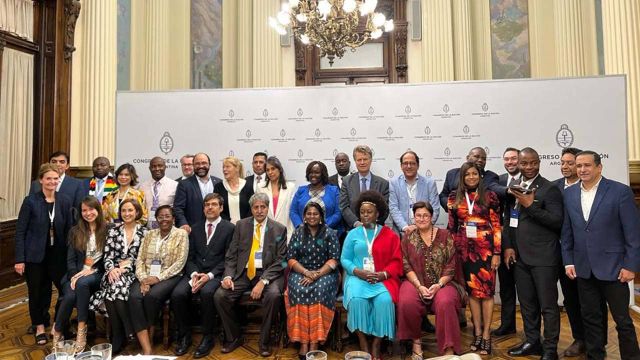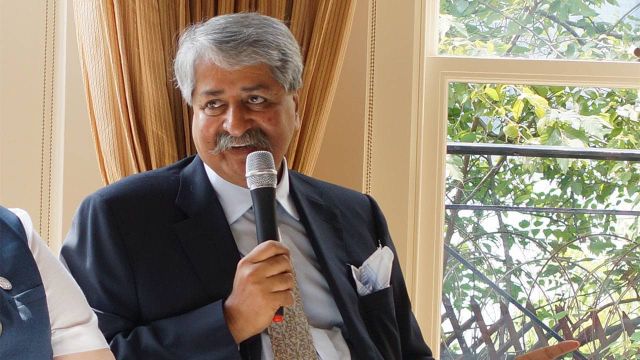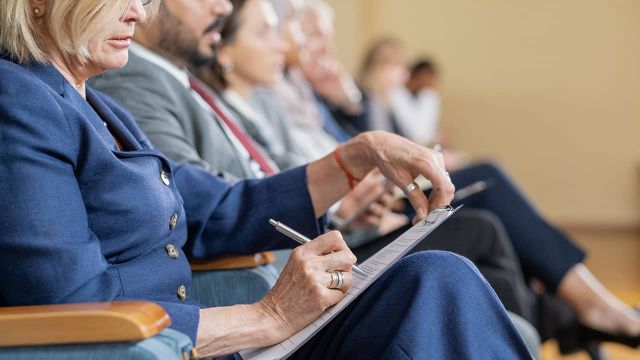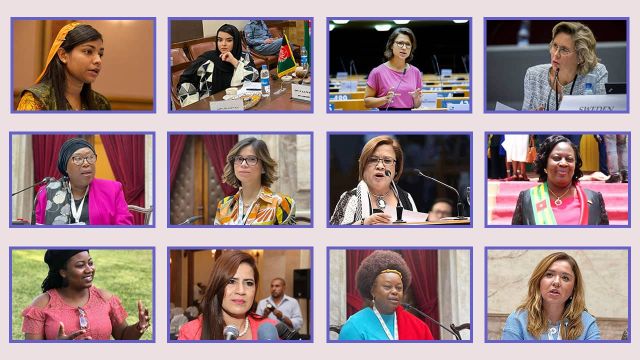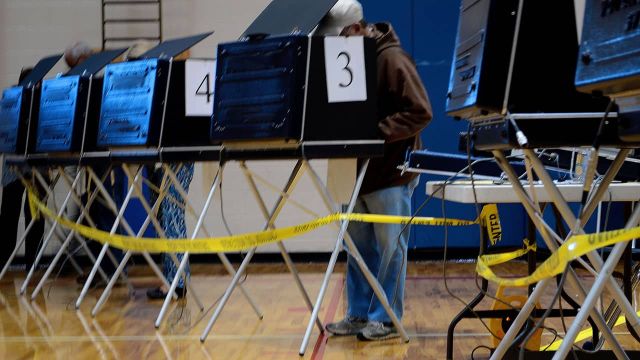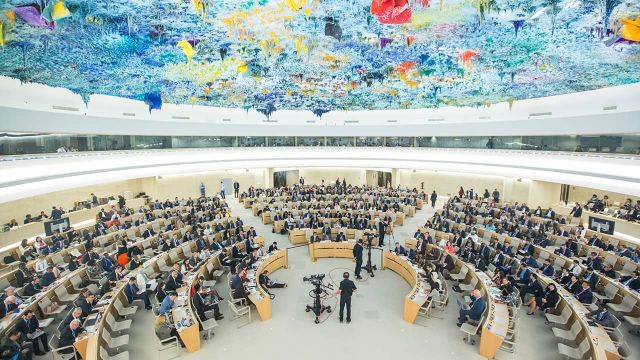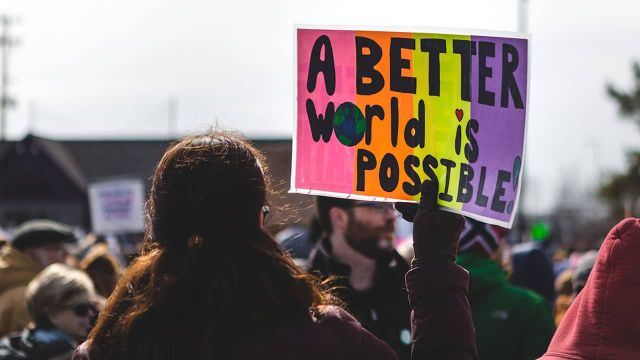3.1 Promoting safe and inclusive political environments for women parliamentarians
Women’s equal participation and leadership in political and public life are essential to achieving the Sustainable Development Goals by 2030. However, data show that women are underrepresented at all levels of decision-making worldwide and that achieving gender parity in political life is far off.
According to 2023 data:1
- Only 26.5 percent of parliamentarians in single or lower houses are women, up from 11 percent in 1995.2
- Only six countries have 50 percent or more women in parliament in single or lower houses: Rwanda (61 percent), Cuba (53 percent), Nicaragua (52 percent), Mexico (50 percent), New Zealand (50 percent), and the United Arab Emirates (50 percent).3
- A further 23 countries have reached or surpassed 40 percent, including 13 countries in Europe, six in Africa, three in Latin America and the Caribbean, and one in Asia.4
- Globally, there are 22 States where women account for less than 10 percent of parliamentarians in single or lower houses, including one lower chamber with no women at all.5
- At the current rate of progress, gender parity in national legislative bodies will not be achieved before 2063.6
- Women hold 36 percent of parliamentary seats in Latin America and the Caribbean and make up 32 percent of parliamentarians in Europe and Northern America. In Sub-Saharan Africa, there are 26 percent of women legislators, followed by Eastern and South-Eastern Asia with 22 percent, Oceania with 20 percent, Central and Southern Asia with 19 percent, and Northern Africa and Western Asia with 18 percent of women Members of Parliament.7
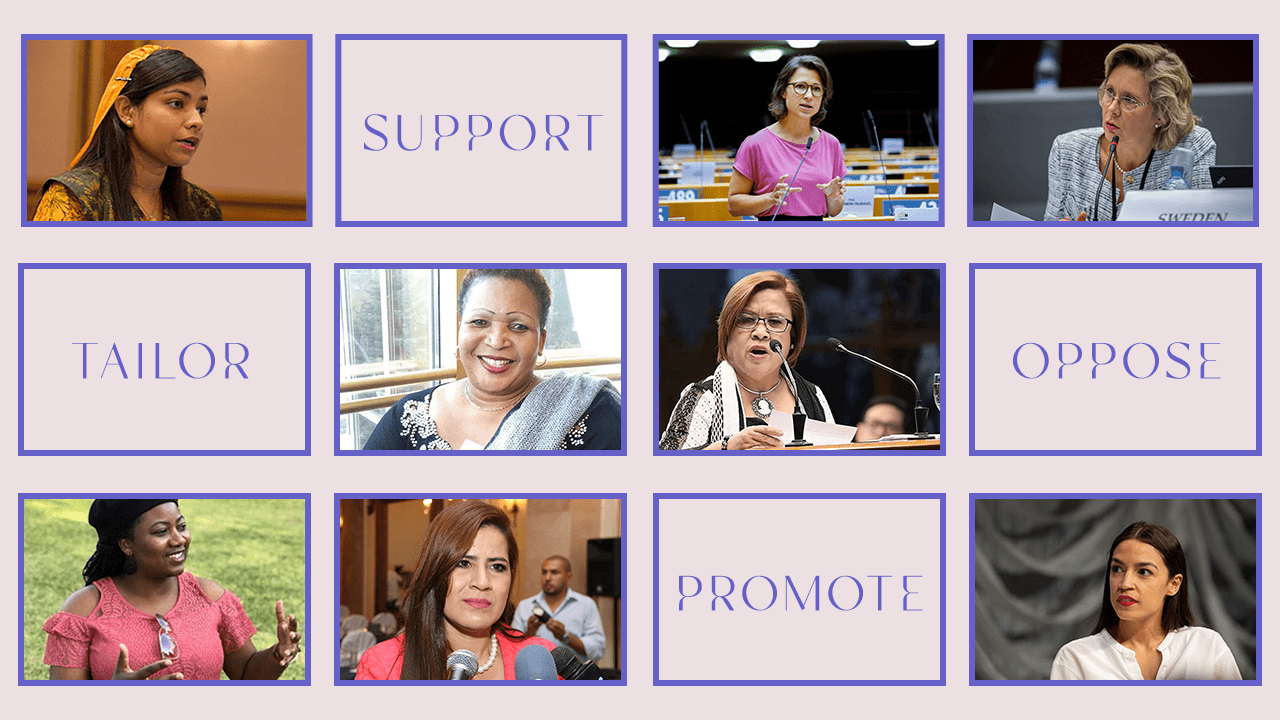
If parliamentarians want to change the current landscape, they should do more to engage with all relevant stakeholders, including vulnerable communities, women organizations, and civil society representatives, to be informed on what measures would best support the goal of increased participation.
A more proactive response to the changing landscape in politics is necessary. The recognition of gender-based challenges and rising threats to the psychological and physical well-being of women legislators is an essential piece of the diagnostic. In December 2021, PGA launched a worldwide campaign to S.T.O.P. Violence Against Women in Parliament with detailed actions that Members of Parliament can undertake. The Senate of Argentina fully endorsed this initiative, and other parliaments around the world may emulate such support to ensure that it remains a priority in legislative work.
Recommendations to parliamentarians to promote safe environments include:
- Supporting and launching sensitization campaigns and programs to raise awareness about gender equality.
- Tailoring, developing, and strengthening national policies, programs, and laws that protect women’s and girls’ rights and promote their full potential. Parliamentarians are encouraged to repeal discriminatory provisions against women and girls and/or amend laws to ensure they address their lived realities and align them with international human rights standards. Sensitizing government officials to carry out existing standards in domestic legislation is essential to advancing this goal.
- Opposing and refraining from using hate speech, misinformation, and disinformation.
- Promoting the establishment of women caucuses in parliament and creating multi-sectoral working groups to address violence against women at the national level and coordinate effective actions and programs to tackle it.
Members of Parliament should also:
- Investigate thoroughly and prosecute those responsible for attacks, harassment, and physical, sexual, verbal, and/or psychological violence against women.
- Abide by international and regional human rights treaties on women’s rights, such as the Convention on the Elimination of all Forms of Discrimination Against Women, the Inter-American Convention on the Prevention, Punishment, and Eradication of Violence against Women (Belem do Para Convention), the Protocol to the African Charter on Human and Peoples’ Rights on the Rights of Women in Africa (the Maputo Protocol), among others.
- Secure fair, equitable, and peaceful elections and transfer of power.
- Urge a responsible use of information and communication technology (ICT) to prevent further abuses against women, including through the adoption of legislation that would not permit users to shield their responsibility behind fake names or identities, nicknames, or other forms of anonymity, bearing in mind that a clear attribution of public interventions or direct messages to their authors may have a significant deterrent effect as it raises the legal and reputational cost of violent, defamatory or otherwise unlawful conduct.
- Collect disaggregated data to understand better the extent of harassment and violence against women parliamentarians for policymaking.
- Use their leadership role to build solid partnerships with governments, international institutions, civil society organizations, the private sector, and other key actors to place women’s and girls’ rights at the forefront of discussions on sustainable development, democracy, and peace.
- Ensure there are policies against harassment within their parliaments, secure and effective complaint mechanisms, and protection for “whistleblowers.”
Some reports contend that the prevalence of sexism, misogyny, democratic backsliding, and authoritarianism have created fertile ground for the institutionalization of violence against women in politics and human rights defenders. Violence against women in politics can take many forms: physical, verbal, sexual, and/or economic. The fight for full participation in political decision-making processes and the promotion of comprehensive women’s rights has come at a significant cost to women, particularly to those mobilizing in parliaments and taking the necessary actions to eliminate all forms of violence against them. In some cases, the pandemic has also served as an excuse for restricting women’s ability to exercise their human right to assemble, especially when they protest against unfair state-led policies that violate fundamental rights. The consequences are still present today.
Case studies
3.2 Parliamentary Sanctions: Codes of Ethics (Parliamentary Assembly of the Council of Europe)
Ideally, parliamentarians would be eager to promote safe and inclusive environments for women parliamentarians. Unfortunately, the reality is very different. An essential tool to mitigate this is establishing accountability procedures or mechanisms for wrongful behaviors within parliament. There should also be rules of procedure or conduct, which include sanctions. A good tool is the Rules of Procedure of the Parliamentary Assembly of the Council of Europe (PACE),11 which incorporates sanctions for non-compliance with the Code of Conduct.
Additionally, parliamentarians should adopt legislation tackling the issue of violence against women in politics. The OAS has a vital tool on the topic: the Inter-American Model Law On the Prevention, Punishment, and Eradication of Violence Against Women in Political Life. This reference law can be tailored to each country in Latin America and provide a uniform standard for the region that could also be replicated in other parts of the world.
Tolerating harassment against female parliamentarians or workers in parliament prevents female candidates from entering the political arena and running for elected office. This lack of support for inclusion stymies goals for better representation of people and respect for their rights. Additionally, digital micro-aggressions are harmful to democratic participation.
IPU STUDY ON VAW IN PARLIAMENT:
Source: IPU Issues Brief, “Sexism, harassment and violence against women parliamentarians” (Inter-Parliamentary Union 2016).
3.3 The Budapest Convention: Protecting women parliamentarians from cyber violence, harassment, and intimidation
The Internet is a double-edged sword. On the one hand, it is a valuable tool for communication, research, and investigation, and on the other, it can be used to incite violence and hate toward individuals, especially those who are most vulnerable, like women, children, LGBTQI+ people, public figures, etc.
Like anyone in public office, women parliamentarians are a target of choice. From anonymous online harassment through social media platforms to aggressive behavior that can be physical, women MPs have become the target of unprecedented levels of cyber abuse and crimes that are detrimental to their personal and professional lives. The future of women in politics is thus affected by the current climate. While online abuse of parliamentarians is not new, the rapid evolution of social media and other information and communication technologies has provided a path for exponential growth. Cyber abuse is prevalent and, to a certain extent, normalized. The scale of online abuse has increased since the COVID-19 pandemic, given that individuals had more time to spend online.
The patriarchal structure in society and parliaments dominated by men account for the fact that cyber-bullying and trolling and, more generally, the online abuse of women parliamentarians are underpinned by misogynistic attitudes. Female political leaders, already vulnerable to other types of gender-based violence, are particularly vulnerable in cyberspace. Sexist, derogatory comments and hate speech have become common, while different types of behaviors have induced cyber-stalking, death threats, and rape. According to the European Institute for Gender Equality, the global pandemic increased cyber violence against women and girls (CVAWG).
Measuring the consequences of online violence against women parliamentarians is difficult because of a scarcity of data, which leads to underestimating the problem. Despite these gaps, there are some key indicators:
The Economist Intelligence Unit has provided some statistics on the prevalence of online violence against women. 38 percent of women have experienced online violence, 65 percent know other women who have been targeted, and 85 percent have witnessed online violence against other women. Online violence is more prevalent in some regions, especially in countries with institutionalized gender inequality. The below shows the percentages of the regions most affected, organized by prevalence rates:
- Middle East: 98%
- Latin America: 91%
- Africa: 90%
- Asia Pacific: 88%
- North America: 76%
Most efforts carried out by countries to address online or offline gender-based violence – strategies, policies, and legislation – have been focused on addressing the aftermath of the experience and not enough on prevention. If countries do not do anything to address the topic holistically, including with a focus on prevention, the situation will worsen. Parliamentarians should focus on prevention and propose evidence-based and data-driven legislation to understand national, regional, and global tendencies.
The most prevalent threat tactics in percentages are:
- Misinformation and defamation: 67%
- Cyber harassment: 66%
- Hate speech: 65%
- Impersonation: 63%
- Hacking and stalking: 63%
- Astroturfing: 58%
- Video and image-based abuse: 57%
- Doxing: 55%
- Violent threats: 52%
Online gender-based violence is, in reality, more prevalent, but underreporting prevents measuring the full extent of the issue with greater certainty. Sima Bahous, Executive Director of UN Women, said during the Commission on the Status of Women 67 that “the gender digital divide is the new face of gender inequality.” Women and girls do not have equal access to technology and the internet, have less access to devices, online education, information, and careers in the tech sector and other employment, and experience more threats to freedom of expression and online safety.
Patriarchal structures and socio-cultural norms have been reproduced in the development, design, and use of new technologies. There is a continuum between the inequalities and discrimination that women and girls experience offline and online. And the tech inequality gap is even greater for Indigenous women, women of color, women in rural areas, and older women.12
These rates of gendered online abuse are consistent with those for female politicians. The Inter-Parliamentary Union surveyed women parliamentarians, and the results are concerning: “81.8 percent of those surveyed in 39 countries had been subjected to various forms of psychological violence, including 65.5 percent targeted with “humiliating sexual or sexist remarks,” 41.8 percent having “Extremely humiliating or sexually charged images” of themselves spread through social media, and 44.4 percent being threatened with “death, rape, beatings or abduction.”
The report further indicated that “[a]mong the respondents, 65.5 percent said they had been subjected several times, or often, to humiliating sexist remarks during their parliamentary term. In most cases, such remarks were made in parliament by male colleagues - from opposing parties as well as their own. Respondents said they had also been subjected to remarks of this kind on social media and, to a lesser extent, by telephone, e-mail, or during political meetings.”
The exclusionary culture within parliament has contributed to the evermore deleterious environment for women parliamentarians.13
Case studies
3.4 Recommendations to protect women parliamentarians from cyber violence, harassment, and intimidation
In 2021, PGA launched an initiative to S.T.O.P Violence against Women Parliamentarians. The Senate of Argentina endorsed this effort, and other countries can replicate such endorsement. The fight for full participation in political decision-making processes and the promotion of comprehensive women’s rights has come at a significant cost to women, particularly to those mobilizing in parliaments and taking the necessary actions to eliminate all forms of violence against them. In some cases, the pandemic has also served as an excuse for restricting women’s ability to exercise their human right to assemble, especially when they protest against unfair state-led policies that violate fundamental rights. This is why, besides the recommendations mentioned in section 3.1, parliamentarians are encouraged to take note of the recommendations included in the 2021 UN Women Guidance Note on Preventing Violence against Women in Politics, including:
- Building the evidence base on violence against women in politics;
- Legislative reform;
- Monitoring and reporting;
- Capacity building;
- Support during electoral processes; and
- Coordination of advocacy campaigns and awareness-raising.
The note also outlines (Annex B) different examples of potential collaboration between different stakeholders. The recommendation for Male Leaders (including political, religious, and traditional leaders) is to “[p]artner with individuals and organizations to sensitize male leaders and encourage them to incorporate acceptance of women in public life, and zero tolerance for VAWP, into their community messaging; training and sensitization on women’s political participation; and advocacy and awareness-raising through campaigns like HeForShe.”20
Sensitizing parliamentarians and parliaments is fundamental to ensure the protection of women in politics against cybercrimes, harassment, and other gender-based violence crimes. To achieve such a goal, individuals and institutions alike must work toward building gender-sensitive institutions, including parliaments. International instruments such as the Convention on the Elimination of All Forms of Discrimination against Women (1979), regional instruments such as the Inter-American Convention to Prevent, Punish and Eradicate Violence Against Women (The Convention of Belém do Pará of 1994), and the Protocol to the African Charter on Human and Peoples’ Rights on the Rights of Women in Africa (The Maputo Protocol of 2003), provide examples of normative frameworks. On policy, although it is not a binding framework, the examples below offer definitions, principles, and guidelines to the international community:
- United Nations Declaration on the Elimination of Violence Against Women (1993)
- Beijing Declaration and Platform for Action, adopted at the Fourth World Conference on Women in (1995)
- Association of Southeast Asian Nations Declaration on the Elimination of Violence against Women and Violence against Children (2013)
- Organization of Islamic Cooperation Plan of Action for the Advancement of Women (2016)
- The EU Code of Conduct on countering illegal hate speech online. “In May 2016, Facebook, Microsoft, Twitter, and YouTube signed a “Code of conduct on countering illegal hate speech online” with the European Commission. Instagram, Snapchat, and Dailymotion joined the code of conduct in 2018, Jeuxvideo.com in 2019, and TikTok in September 2020. The signatories to the code of conduct have committed to reviewing reports of hate speech on their platforms and responding to unlawful content within 24 hours. The parties define unlawful hate speech based on the “Council Framework Decision on combating certain forms and expressions of racism and xenophobia by means of criminal law” (European Union 2008). The definition covers public incitement to violence or hatred directed at a group of persons or a member of such a group, defined by reference to race, color, religion, descent, or national or ethnic origin. The most common ground for hate speech online in 2020 was sexual orientation, accounting for 33% of reports. This is explained partially by the fact that “organisations working on LGBTQI rights have been more active in flagging content” (European Commission 2020c). The major flaw of this monitoring activity is the lack of data disaggregation and overall transparency on reports and removals. Intersectional attacks are not accounted for, making it complicated to fully understand the phenomenon of hate speech online that contains a strong intersectional dimension and thus trivializing the experience of many women users.”21
Parliaments are in a privileged position to address violence against women parliamentarians. Addressing legislation in a comprehensive and integrated manner, repealing direct or indirect discriminatory laws and policies, and resolving conflicts between sexual and gender-based violence laws and customary religious laws are fundamental pieces on which parliamentarians should work to make protecting women in politics a reality. Additionally, removing the barriers during elections for female representatives or candidates would contribute to ensuring new political leaders. Legislative and policy work must be evidence-based to be efficient, and indicators are an important tool to that effect.
CORE INDICATORS TO MEASURE VAW IDENTIFIED BY THE FRIENDS OF THE CHAIR
- Total and age specific rate of women subjected to physical violence in the last 12 months by severity of violence, relationship to the perpetrator and frequency;
- Total and age specific rate of women subjected to physical violence during lifetime by severity of violence, relationship to the perpetrator and frequency;
- Total and age specific rate of women subjected to sexual violence in the last 12 months by severity of violence, relationship to the perpetrator and frequency;
- Total and age specific rate of women subjected to sexual violence during lifetime by severity of violence, relationship to the perpetrator and frequency;
- Total and age specific rate of ever-partnered women subjected to sexual and/or physical violence by current or former intimate partner in the last 12 months by frequency;
- Total and age specific rate of ever-partnered women subjected to sexual and/or physical violence by current or former intimate partner during lifetime by frequency;
- Total and age specific rate of women subjected to psychological violence in the past 12 months by the intimate partner;
- Total and age specific rate of women subjected to economic violence in the past 12 months by the intimate partner;
- Total and age specific rate of women subjected to female genital mutilation.
WAYS ELECTION OBSERVATION INSTITUTIONS CAN INTEGRATE VAWP MONITORING INTO THEIR WORK:
- Add questions on VAWE to existing election observation data collection checklists.
- Specifically instruct LTOs (typically engaged 6 weeksmany months in advance of an election) to speak to women candidates, their staff, women political party members and EMB officials.
- Interview women who have withdrawn from electoral processes to understand why they did so.
- Disaggregate all data by sex to identify potential gender impacts of all election aspects.
- Use existing tools to collect data on VAWE (e.g. International IDEA’s Electoral Risk Management Tool, Carter Center’s Election Standards) to integrate VAWE questions.
Sources: UN Women, the Office of the High Commissioner on Human Rights (OHCHR) and the UN Special Rapporteur on violence against women, its causes and consequences, VIOLENCE AGAINST WOMEN IN POLITICS, Expert Group Meeting Report & Recommendations | 8-9 March 2018 | New York, NY.
UN Women, DATA AND VIOLENCE AGAINST WOMEN IN POLITICS, Expert Group Meeting Report & Recommendations, 4-5 December 2019 | New York, NY.
Footnotes:
1 UN Women, Facts and figures: Women’s leadership and political participation, https://www.unwomen.org/en/what-we-do/leadership-and-political-participation/facts-and-figures.
2 Inter-Parliamentary Union, Women in national parliaments, as of 1 January 2023.
3 Ibid.
4 Ibid.
5 Ibid.
6 UN Women calculations.
7 Inter-Parliamentary Union, Women in national parliaments, as of 1 January 2023.
8 Parliamentary Assembly of the Council of Europe, Enhancing participation of women from under-represented groups in political and public decision-making, March 2021.
9 Parliamentary Assembly of the Council of Europe, Committee on Equality and Non-Discrimination, Charter of European political parties for a non-racist and inclusive society.
10 Ibid
11 Parliamentary Assembly of the Council of Europe, Rules of Procedure of the Assembly (January 2023).
12 Marie Lamensch, At the UN, Women Lead Efforts to Bridge the Digital Divide, Center for International Governance Innovation, published on 20 April 2023.
13 Maya Oppenheim, Fishnets and Tinder: Women MPs reveal toxic sexism in Westminster, Independent, published on 10 January 2023.
14 Christina Julios, Ignoring online abuse of women MPs has dire consequences, London School of Economics (LSE), published on May 17th 2023.
15 Azmina Dhrodia, Unsocial Media: Tracking Twitter Abuse against Women MPs, Amnesty International, published on 4 September 2017.
16 Marie Lamensch, At the UN, Women Lead Efforts to Bridge the Digital Divide, Center for International Governance Innovation, published on 20 April 2023.
17 Addressing Online Misogyny and Gendered Disinformation: A How-To Guide, published by the National Democratic Institute in 2021.
18 Astha Rajvanshi, Disinformation Campaigns Against Women Are a National Security Threat, New Study Finds, TIME, published on 21 February 2023
19 Online Safety Bill, published by the authority of the House of Lords, 18 January 2023.
20 UN Women, PREVENTING VIOLENCE AGAINST WOMEN IN POLITICS, published in July 2021, page 32.
21 Council of Europe, PROTECTING WOMEN AND GIRLS FROM VIOLENCE IN THE DIGITAL AGE, December 2021.




